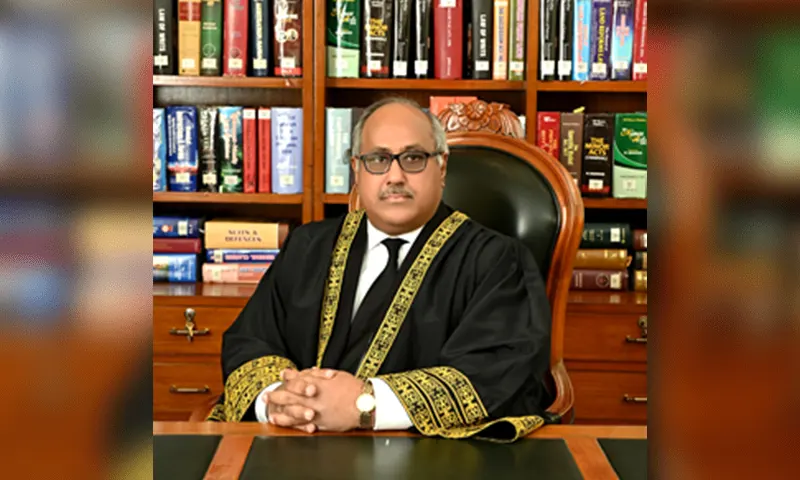Justice Shahid Waheed of the Supreme Court observed on Thursday that judges could not raise objections regarding the constitution of benches, saying that if they do so they would become a complainant and it would no longer be appropriate for them to hear the case.
He made the remarks in a dissenting note for a suo motu case pertaining to pertaining to the 2018 regulation of the Pakistan Medical and Dental Council (PMDC) that suggested an award of 20 additional marks to candidates for memorising the Holy Quran by heart to get MBBS or BDS degrees.
Justice Waheed was part of the three-judge special bench that heard the case. A day earlier, the other two members of the bench, Justice Qazi Faez Isa and Justice Aminuddin Khan, held that the Constitution did not grant unilateral and arbitrary power to the chief justice of Pakistan (CJP) to list cases for hearing, form special benches and select judges.
“With respect, the chief justice cannot substitute his personal wisdom with that of the Constitution,” Justice Isa said in his remarks, part of a 12-page judgement he authored.
He proposed that cases under Article 184(3) of the Constitution be postponed until amendments were made to Supreme Court Rules 1980 regarding the CJP’s discretionary powers to form benches. However, Justice Waheed had disagreed with the judgement.
In a separate five-page dissenting note, Justice Waheed said that the case at hand merited the bench to pass a “regulatory order”.
He noted that the attorney general had asked for an adjournment in order to file a concise statement, while the PMDC had told the court that the regulation in question had been withdrawn and asked for time to bring it on record.
“So, in my view, the requests for adjournment alone were to be considered by the bench, and our order ought to have been confined to it. This means a regulatory order was to be passed. On the contrary, I find that the said requests have been left unattended but certain other points have been discussed in the order which has led me to record this dissenting note,” he said.









